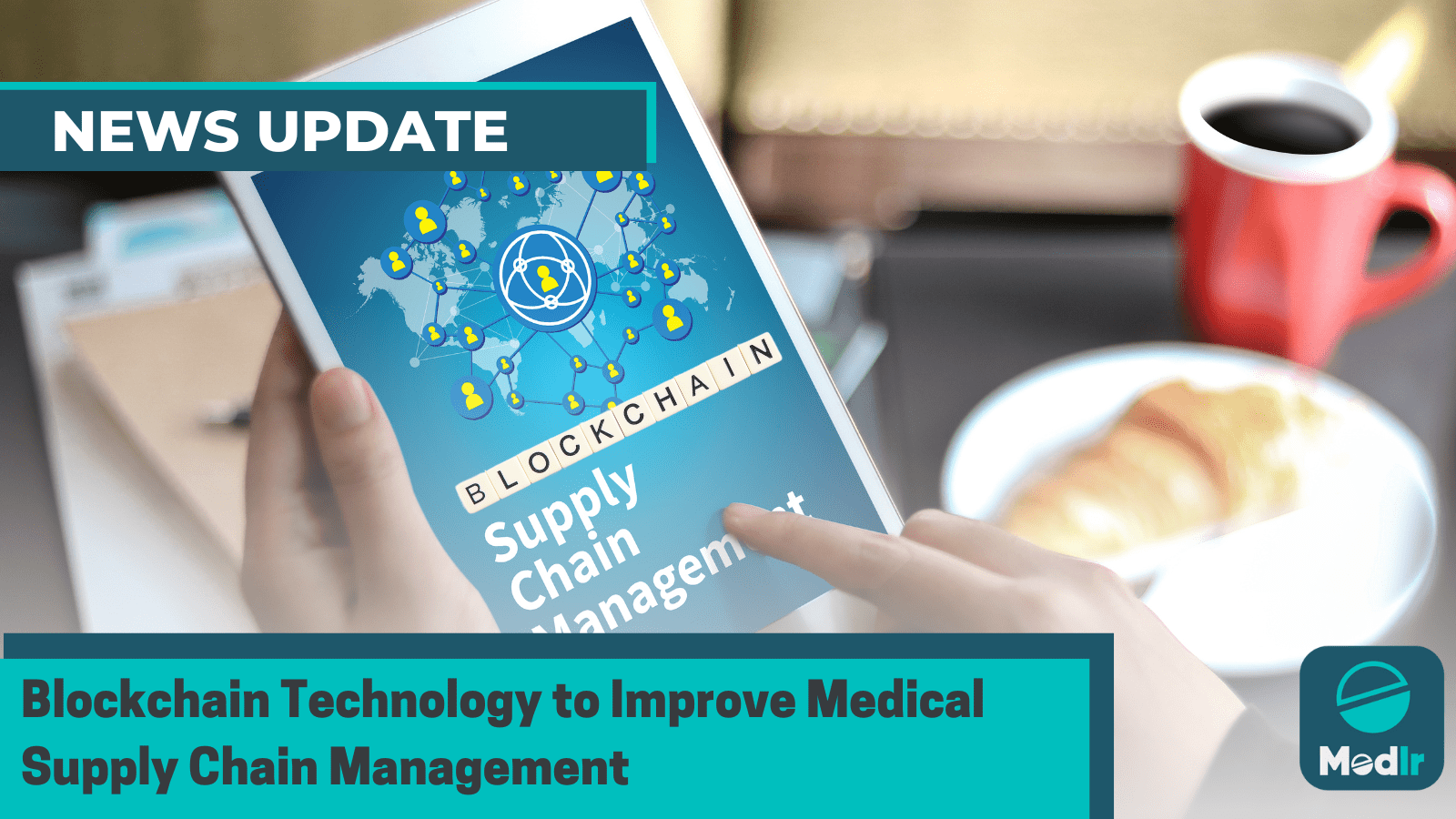Blockchain Technology to Improve Medical Supply Chain Management
Written by Shaveta Arora
Explore how blockchain technology revolutionizes medical supply chain management, enhancing transparency, traceability, and security while optimizing efficiency and patient safety.

Healthcare and medical supply chain participants encounter multiple challenges in ensuring the timely and efficient delivery of crucial medications, equipment, and healthcare products. Sharing transactional data, including orders, inventory levels, and consignment events, plays a pivotal role in powering this process.
However, the traditional approach to supply chain management often suffers from issues like missing information, lack of transparency, inefficient tracking, and counterfeiting. Introducing blockchain technology in digital supply chain management can potentially tackle these challenges and facilitate the exchange of context-based risk management information within the system.
According to a recent Gartner report, leaders responsible for supply chain operations are projected to invest in blockchain technology as an authentic data platform to enable real-time data exchange by 2025. As machine-to-machine digital data exchange becomes more prevalent in supply chain ecosystems, orchestrating an efficient and innovative IT strategy for risk management and purpose becomes crucial for blockchain adoption.
The medical supply chain encompasses various interconnected steps, such as -
- Manufacturing
- Distribution
- Warehousing
- Transportation
- Delivery of medical products to healthcare providers and patients
However, this complexity leads to numerous challenges.
Patient safety is at risk due to counterfeit drugs infiltrating the supply chain, which may lack efficacy or contain harmful substances. Inefficient tracking and limited visibility into inventory levels can result in stockouts or excessive inventory, leading to increased costs and compromised patient care. Additionally, the lack of transparency caused by opaque pricing structures and data silos hampers fair market practices.
Blockchain technology, with its foundation of transparency, immutability, and decentralization, offers an innovative solution to tackle the challenges faced by the medical supply chain.
Better Traceability and Transparency in Medical Supply Chain with Blockchain Technology
By leveraging blockchain technology, a secure and transparent ledger is established, capturing every transaction and movement of medical products as immutable blocks. These blocks form a chain, providing a complete audit trail of the entire supply chain process. This newfound transparency empowers stakeholders to track and verify the authenticity, quality, and origin of medical products in real-time. Swift identification and removal of counterfeit products from circulation become possible, thereby ensuring the safety of patients.
Multi-party Governance Procedure and Supply Chain Efficiency in Medical Supply Chain with Blockchain Technology
Through the utilization of multi-party governance workflows, blockchain technology automates and streamlines different facets of the medical supply chain. By eliminating intermediaries, it reduces administrative burdens, paperwork, and related expenses. Additionally, blockchain enables precise demand forecasting, optimizing inventory management and mitigating issues like stockouts or surplus inventory. This not only enhances the efficiency of the supply chain but also minimizes waste and guarantees the timely availability of essential medical resources in the required locations.
Improved Security and Data Integrity in Medical Supply Chain with Blockchain Technology
In the medical supply chain, maintaining data security and integrity is of utmost importance. Blockchain technology utilizes cryptographic features to safeguard sensitive medical information, such as patient data and supply chain transactions. By storing encrypted records on the blockchain, it ensures that these records cannot be tampered with or altered without consensus from the network participants. This robust system provides an additional layer of protection, effectively guarding against data breaches and unauthorized access.
Interoperability and Collaboration in Medical Supply Chain with Blockchain Technology
Multiple stakeholders participate in the medical supply chain, often employing disparate systems and databases. Blockchain technology plays a vital role in promoting interoperability by establishing a decentralized platform that enables seamless data exchange and collaboration among these parties. It eliminates data silos, ensures data consistency, and facilitates efficient information sharing, simplifying regulatory compliance and strengthening stakeholder collaboration.
Real-world implementations like MediLedger, PharmaLedger, and MedRec have showcased the numerous benefits derived from utilizing blockchain as the foundational technology for fostering digital trust ecosystems in the medical supply chain.
Although blockchain holds immense potential for transforming medical supply management, widespread adoption requires addressing various challenges.
Integration of Blockchain Technology with Legacy Systems
Integrating blockchain technology into healthcare organizations with legacy systems necessitates careful planning, investment, and stakeholder collaboration. The process involves ensuring a seamless transition while addressing the incompatibility between the existing systems and blockchain.
Regulatory and Legal Considerations
The implementation of blockchain in the medical supply chain necessitates adherence to regulatory and legal frameworks. It is crucial to develop standards and guidelines that guarantee data privacy, security, and compliance with industry regulations. This ensures that the utilization of blockchain technology aligns with the necessary requirements and safeguards in the healthcare sector.
Interoperability and Standardisation
Achieving interoperability and standardization across healthcare systems and data platforms remains a challenge. To ensure smooth data exchange and compatibility, collaborative efforts are necessary to establish common protocols, frameworks, and data standards.
The medical supply chain is poised for transformation, and blockchain technology offers a promising solution to its persistent challenges. Blockchain has the potential to revolutionize the manufacturing, distribution, and delivery of medical products by enhancing transparency, traceability, security, and efficiency.
Adopting tokenless blockchain implementations that provide unique, persistent identifiers for referencing records can create dynamic and authenticated data registries, improving data governance and mitigating the risks associated with data breaches.
However, widespread adoption requires collaboration, standardization, and investment from all stakeholders. As blockchain continues to evolve, it holds the potential to enhance patient safety, optimize inventory management, reduce costs, and ultimately improve healthcare outcomes on a global scale.